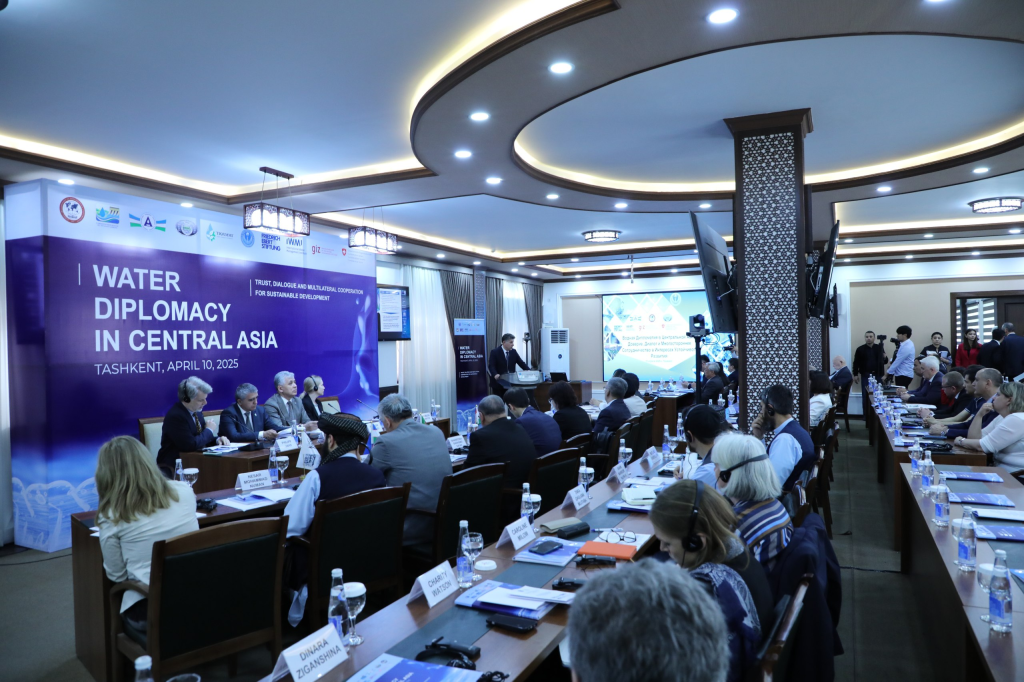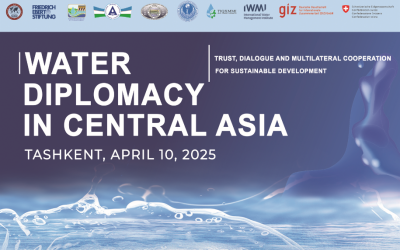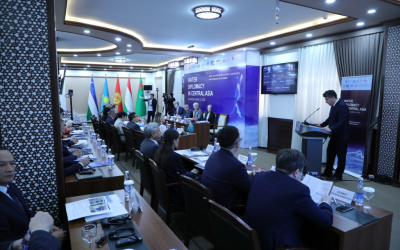Samarkand Climate Forum – Embodiment of New Reality in Central Asia

An international scientific and practical conference “Water Diplomacy in Central Asia: Trust, Dialogue and Multilateral Cooperation for Sustainable Development” was held in Tashkent.
The event, organized by the Institute for Strategic and Regional Studies under the President of the Republic of Uzbekistan, was attended by representatives of all countries sharing the basins of the two major rivers of Central Asia – the Amudarya and Syrdarya, as well as representatives of 15 international and regional organizations, including the UN Regional Centre for Preventive Diplomacy for Central Asia, the United Nations Assistance Mission in Afghanistan, the International Water Management Institute, the Regional Environmental Centre for Central Asia, the International Fund for Saving the Aral Sea, the Scientific Information Centre of the Interstate Commission for Water Coordination of Central Asia.
More than 20 experts and specialists from strategic research institutes, research institutions and water management agencies of the countries of Central Asia and Afghanistan made presentations. Experts from specialized research institutes from Asian and European countries shared their experience in developing water diplomacy.
ISRS First Deputy Director Akramjon Nematov noted that the venue for the conference – the Tashkent Institute of Irrigation and Agricultural Mechanization Engineers – was not chosen by chance. The university is 90 years old, during which it has been considered a forge of personnel not only for Uzbekistan, but also for other countries, a place for generating ideas for solving water issues. In addition to citizens of Uzbekistan, more than 500 students from 18 countries study here.

“Water issues are an important issue worldwide”, says A. Nematov. “According to the World Meteorological Organization, the last two years have been the driest in three decades, 3.6 billion people, at least for a month, but every year face the problem of insufficient access to water. By 2050, this figure is expected to increase to five billion people. The problem is aggravated by the fact that only from 2022 to 2024 there was the largest three-year loss of glacier mass in the entire history of observations. It is predicted that “eternal ice” may not survive the 21st century in many regions. Glaciers are the main drinking water source, especially for Central Asian countries. Only by joint efforts can we cope with the distress signals that nature is sending”.
This issue was also discussed at the International Climate Forum in Samarkand, which was attended by the leaders of the countries of Central Asia and the European Union. The heads of state voiced several vital initiatives designed to give additional impetus to interaction in addressing pressing issues on the region's climate agenda.
The President of Uzbekistan proposed implementing a Regional Program for the Introduction of Water-Saving Technologies in Central Asia and holding an international forum in the Aral Sea region for expert discussion of these plans. The Head of state called for strengthening cooperation with the EU in monitoring the state of glaciers and early diagnostics of risks to mountain ecosystems in Central Asia. To mobilize funding, technology, and competencies, it was proposed to create a Secretariat of the EU initiative “Water – Energy – Climate Change” in Tashkent.

The Samarkand Climate Forum has become yet another evidence of the new reality in Central Asia, where friendship and good neighborliness between the states of the region are steadily developing. Recently, the Treaty on the Junction Point of State Borders and the Declaration of Eternal Friendship between Uzbekistan, Kyrgyzstan, and Tajikistan were signed in Khujand. All this indicates that the states of the region are demonstrating a high level of consolidation and readiness to bear responsibility for the well-being of Central Asia jointly.
Previous

On April 10 this year, Tashkent will host an International Scientific and Practical Conference on the topic: “Water Diplomacy in Central Asia: Trust, Dialogue and Multilateral Cooperation for Sustainable Development.”
08.04.2025Next

An international scientific and practical conference “Water Diplomacy in Central Asia: Trust, Dialogue and Multilateral Cooperation for Sustainable Development” was held in Tashkent.
10.04.2025





